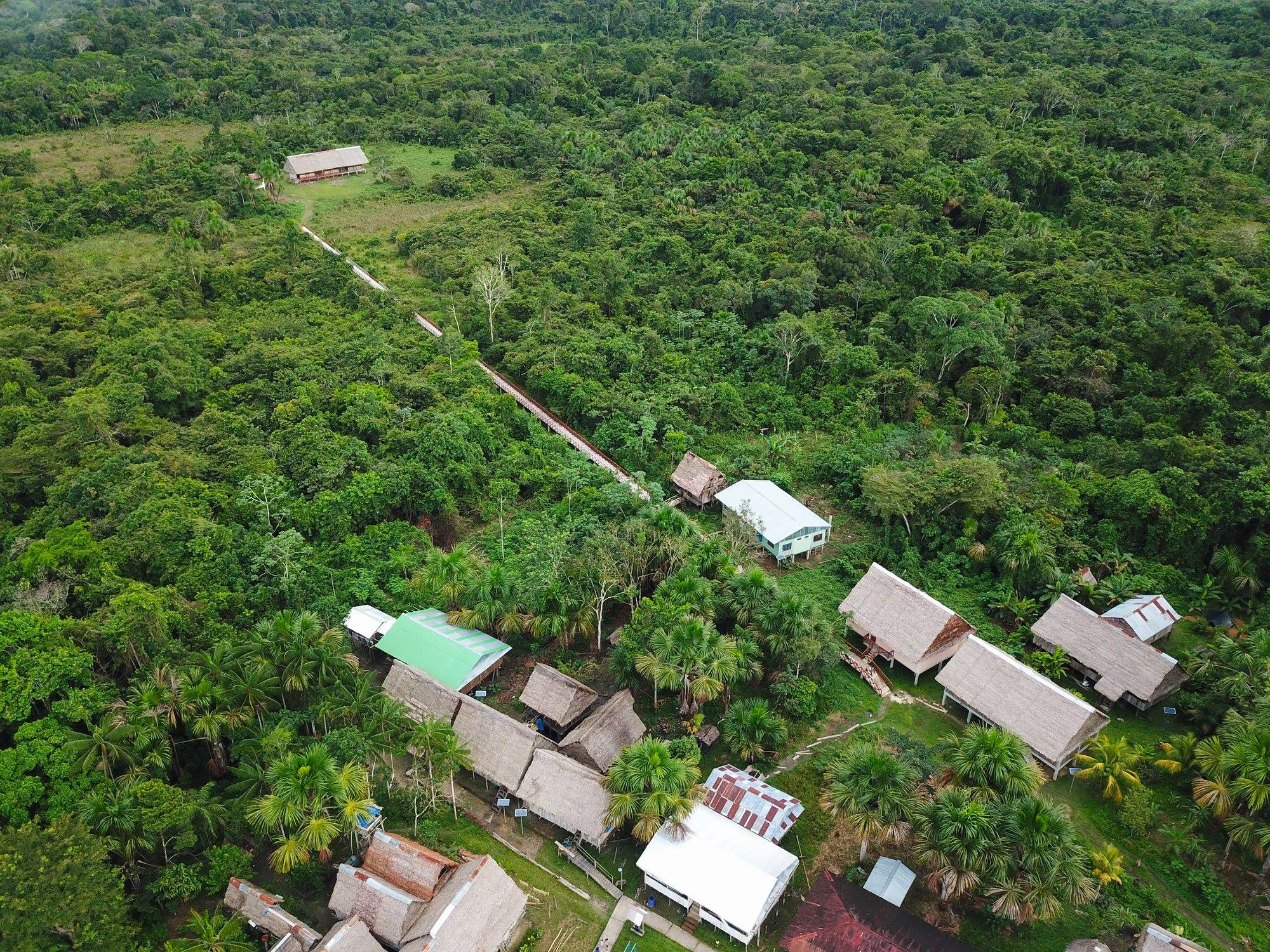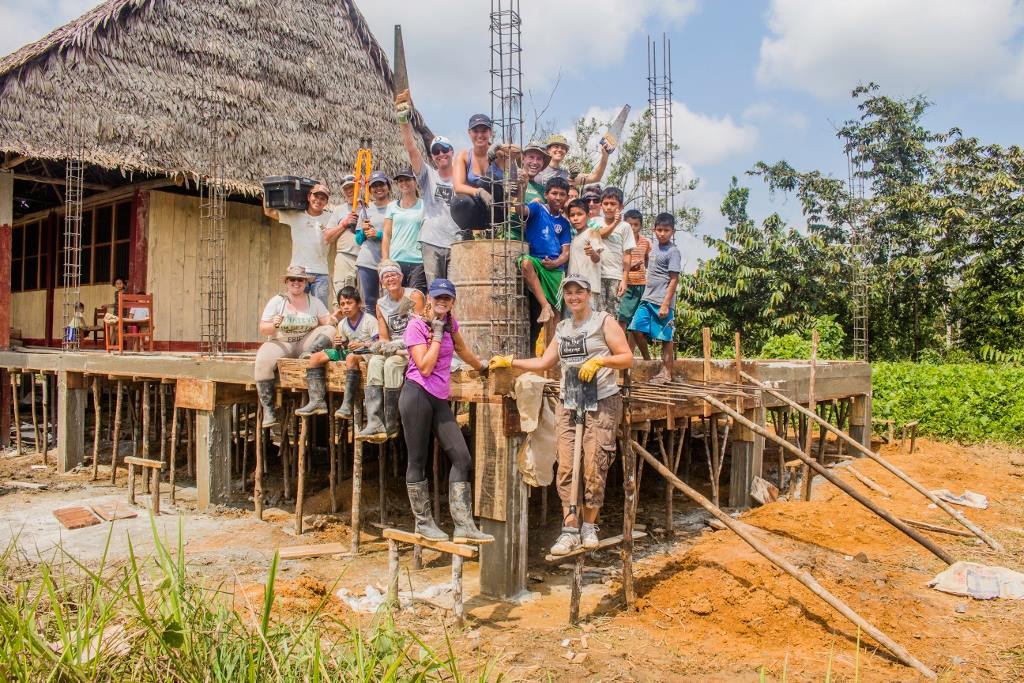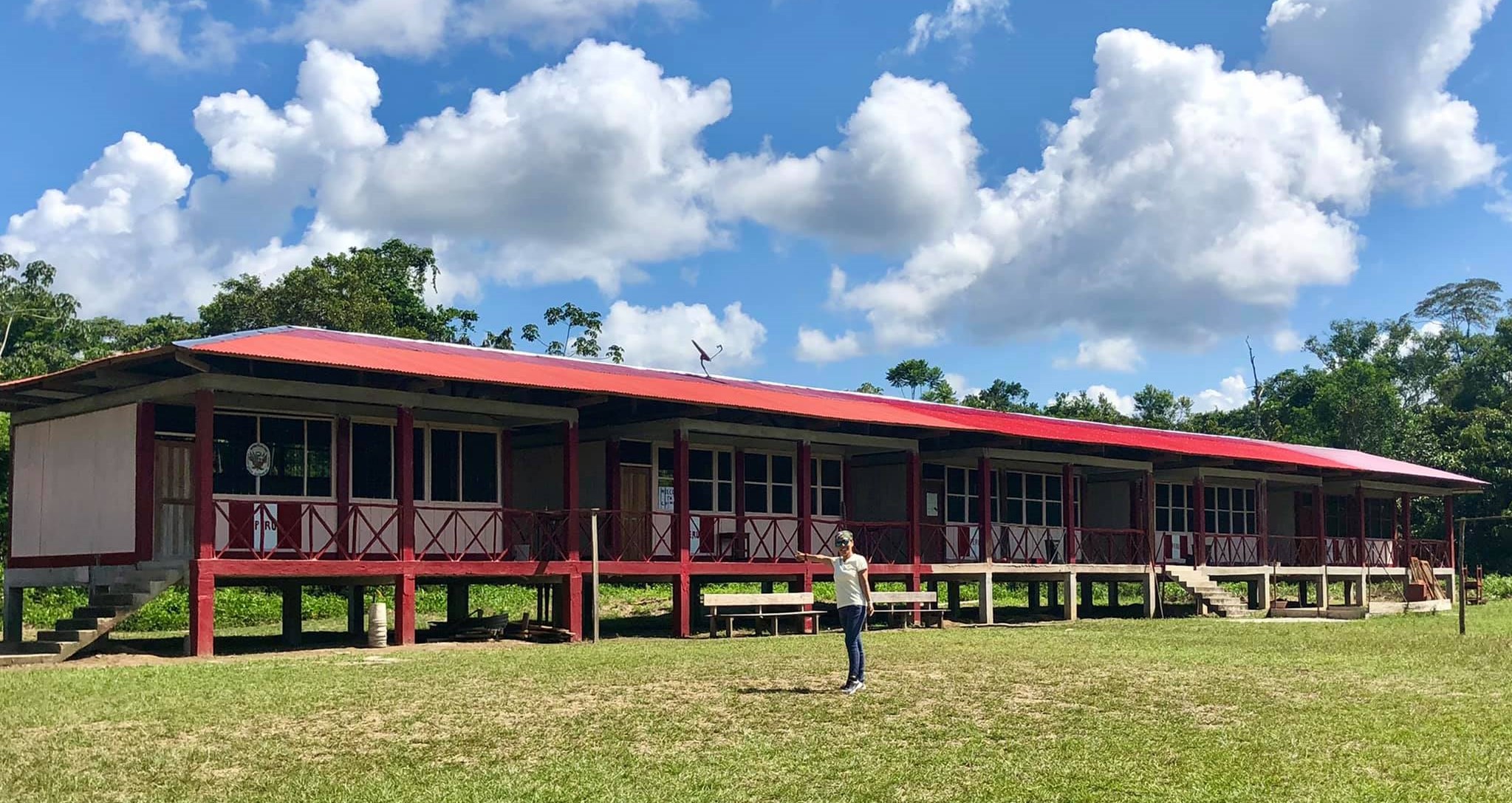A High School for the Tahuayo Communities
By Dolly BeaverWhen Amazonia Expeditions moved its base to the Tahuayo River in 1995, I saw that there was no high school for the indigenous communities. There was only an elementary school that offered 1st through 6th grade. The school had a nonfunctioning single toilet for all students and teachers and no running water. It was unsanitary and grossly disgusting. Without the opportunity of a secondary school education, the children pretty much began an adult life at age of 12 or 13, farming by swidden agriculture for the boys, but it was with the girls that broke my heart, as they were usually pregnant by 13 or 14. Some of these young girls were smart and had the potential to make a better life. But without education the only choices were either to live an impoverished agrarian life or venture into Iquitos city to look for work as a maid, sometimes disappearing into the underworld of human trafficking.
Once I settled into my job on the Tahuayo I made friends with the mothers in the communities, especially our closest neighbors, in the village of El Chino. They would confide in me about their disappointments in life as well as their hopes for their children. The biggest issues were the lack of health care and lack of education that could provide opportunities for their children. They were frustrated by the absence of any solutions. They didn’t know how to fix the situation, and at first, neither did I. I knew that a high school education could transform lives, as it had with my own life.
I often thought what if one of those girls would be me? I remembered when my mom lived in the jungle, as an elementary school teacher in a small village. Like most remote villages, the government only provided an elementary school to teach basic literacy. When my oldest sister reached an age to go to secondary (high) school my mom decided that she was giving up her job and moving back to the city. My father came from the jungle and didn’t value education as much as my mom, feeling that girls should just marry and have a family and then their husbands would support them. But my mom was strong and valued education and she moved back to Iquitos with her children; my dad eventually came as well. After living in the jungle, city life in a poor neighborhood was very hard for them. But their children now had full access to education. I finished secondary school and went on to study in two technical schools. I valued my education and the career opportunities it had provided me.


Having been given such a precious opportunity I ached to do something for my friends in El Chino village. I managed to find foster homes in the city and with the approval of the parents, brought several of the smartest girls who had just finished elementary school to Iquitos to complete their high school. They went on to technical school and into careers that not only enriched their lives but also substantially helped their families. I began taking more children, including boys, but it became expensive. One of my tourists suggested that I start a not-for-profit foundation, thus Angels of the Amazon was born. Now I could afford to care for many more children. But managing children in the city without their parents was very difficult and still left so many behind who yearned for the opportunity.
What was needed was a high school in El Chino. I met with the community leaders, the elementary school principal and mothers to start a petition to the government for the right to have a high school. With pressure from the mothers, it was approved by the community leaders. After a long process and loads of bureaucratic paperwork, the government granted the El Chino community with the right to have a high school. The government sent us teachers from the city, but the existing community structures were ill-equipped to provide space. What served as the high school was the community house, subdivided by particle board sheets, and old student desks and chairs in insufficient quantity. Moreover, the building flooded during the seasonal flood, eliminating 2-3 months of the school year.
We needed infrastructure: classrooms for the students, chairs and desks, school supplies, modern bathrooms, and a home for the teachers, built above the level of any seasonal flood. We were in the midst of building the Esperanza Clinic (in 2007; it was re-built better in 2019) and our foreman gave us a cost for a school campus that was far beyond our means. So we requested help from the government and were told we would be put on the waiting list. We knew that it would be many years before we would see any help in that. Then we learned about a not for profit organization in the USA that builds schools in remote communities around the world. We applied for a grant to the organization of Be The Change Volunteers (BTCV), and were accepted.

The community of El Chino offered land that didn’t flood too deep and was removed from the distractions of daily life. The site is at some distance into the forest in back of the community. The only distractions the students have are the beautiful birds, monkeys and luxurious green foliage that surrounds them. BTCV has been a wonderful partner helping every year to build another piece of the campus. Now there are 5 classrooms, modern bathrooms with running water and flush toilets, a home for the teachers, remote instruction by cable TV, desks, chairs, everything! For that, together with the parents and children of the Tahuayo, we are forever grateful!
So much has now changed in the life of the community, with students proud and eager to learn, knowing that opportunities, choices for a career are on the horizon. But education is always an ongoing process. You never rest on your laurels, you always are looking for how to improve. We have to keep improving our high school as well as build something better than the building the government made for the elementary school (which also floods 2-3 months a year). We also would eventually like to build a cafeteria, library and internet building and provide better educational support material.
For every BCTV volunteer, every student sponsor and every donor who has supported our efforts to provide a bright future for so many children through better education, you have made the world can be a better place. Thank you!
